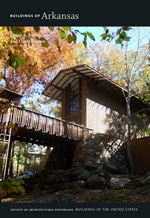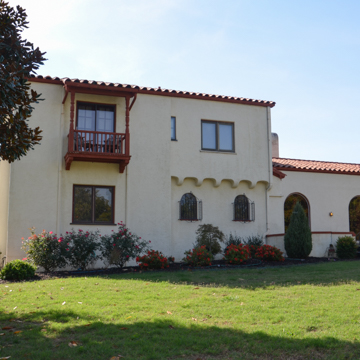This handsome Spanish Colonial Revival L-shaped house just west of downtown was commissioned by E. N. Beisel, manager of a wood-veneer mill, as a wedding present for his wife. Typical of the style are the stuccoed exterior, the second-story overhang, roundarched windows and entrances, a low-pitched red clay tile roof, wrought-iron window grilles, and the small wooden balcony in front of a second-story window. The house set a precedent for several other Spanish-influenced houses in Paragould in the 1930s. A few years after it was built, Cecil Mitchell, who later became president of Paragould’s First National Bank, purchased the house.
You are here
Beisel-Mitchell House
If SAH Archipedia has been useful to you, please consider supporting it.
SAH Archipedia tells the story of the United States through its buildings, landscapes, and cities. This freely available resource empowers the public with authoritative knowledge that deepens their understanding and appreciation of the built environment. But the Society of Architectural Historians, which created SAH Archipedia with University of Virginia Press, needs your support to maintain the high-caliber research, writing, photography, cartography, editing, design, and programming that make SAH Archipedia a trusted online resource available to all who value the history of place, heritage tourism, and learning.















